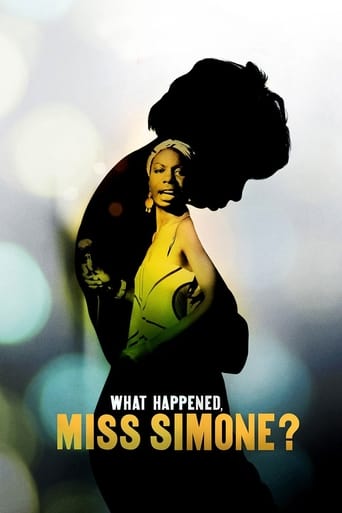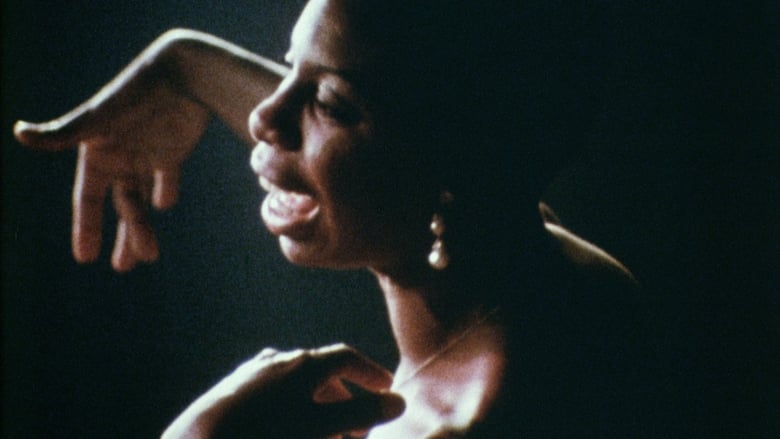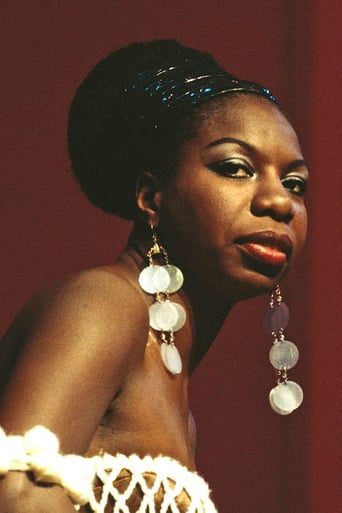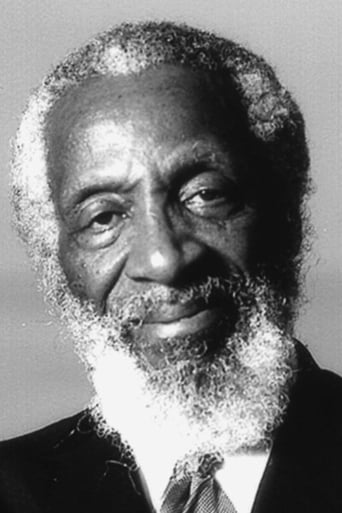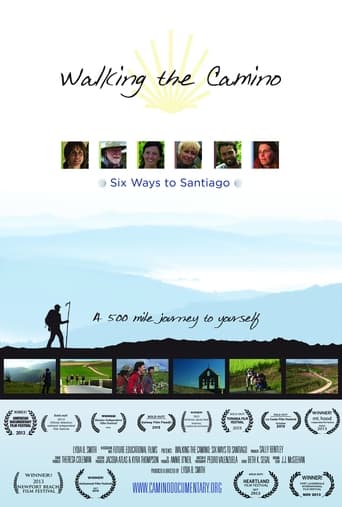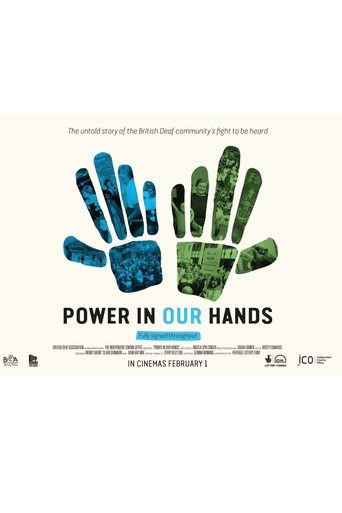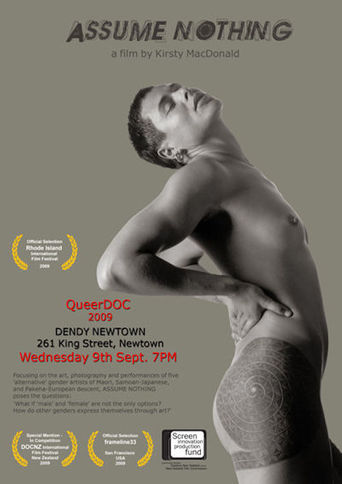What Happened, Miss Simone? (2015)
The film chronicles Nina Simone's journey from child piano prodigy to iconic musician and passionate activist, told in her own words.
Watch Trailer
Cast


Similar titles
Reviews
good film but with many flaws
Disturbing yet enthralling
The film makes a home in your brain and the only cure is to see it again.
Easily the biggest piece of Right wing non sense propaganda I ever saw.
Why wait till the end of the movie to finally suggest that the reason why Nina Simone was unhappy was because she was bipolar, then maybe we can follow through the entire movie knowing that we're just looking at a crazy woman! I'm confused is she the one to blame for the beatings she took from her husband, for living in a time of racism where it was not even permitted to discuss trauma, for being turned down to go to a school because she was African-American; only to be acknowledged after her death,for her political involvement with civil rights movement, which has always been considered taboo, for being poor, for living in fear of a lynching, for not being permitted to be a mother - just for living in fear! Hey! While you're at it, you can just write her out of the movie all together and just say this is how you become bipolar! This is what happens to women when they are given too much responsibility! We love that story! She can't take care of herself. As long as the men took care of the bills, she couldn't possibly understand the bills. Even in her final moments, she is not heard. It all falls on deaf ears Nina! They're not listening! They can't hear you! They gave you the pills so you could just keep playing! It's three strikes and you're out - African-American, woman, mental illness! I can't imagine a place anywhere and in anytime that a woman like this was not spotted on the street and cared for? Was that the state of mind during the civil rights movement? Can you answer me that question? You are telling me not one person, not a friend,family, or fan came to take care of her? I mean manic-depression has been around quite a long time! Centuries! There has always been people who have it and have been around to treat it. It didn't just happen in the last ten years! I'm sick of the big finale of bipolarism/mental illness! Why not do what has always been done when a writer/director doesn't know how to end a story - just staple a deuce ex machine to it and call it a day! Perfect rags to riches story, hey? Why even mention a mental illness? So those of us who suffer can say, well that's why we'll never be an important part of society! Or those of us who don't suffer as much can button it with, oh thank heavens she got help! Maybe a better ending might be triumphant? The husband is put in jail, finally justice served! By the way, since we are airing out the dirty laundry, what about the husband? What was his mental illness diagnosis? That he was a man and times were different? He gets a pass? The daughter? Anyone with the correct information knows that it runs in the family. How about tieing things up with a prompting of intolerance? Or don't women, African-American and those suffering with mental illness deserve some tolerance? And don't think I didn't miss that you are quick to label an abused woman as bipolar, which is why I asked the question at the beginning. Isn't this what the movie was about? Creating more intolerance! That is why they smacked the mental illness label onto Nina and the ending of the movie: so we could all feel like we were in the same company with the intolerant, nice and cosy. It is a mirror of our intolerance. It's just an easier explanation than and less taboo to just say she lost her fame because of bipolarism and easier to diagnose as she is a woman. Whatever, bravo to the director for an ignorant message! I loved seeing the original footage, but the the director should be cremated! Nina you're not alone. You were never alone. We women are all still dieing silently - African-American, or pathetically diagnosed with a mental illness - for all our tries.
Greetings again from the darkness. Classical pianist, extraordinary singer, highly sought after live performer, Civil Rights activist, and inspiration to so many it's only fitting that Nina Simone is now the subject of an Oscar nominated documentary. Talented filmmaker Liz Garbus (also Oscar nominated for 1998's The Farm: Angola, USA) provides a biography that is both a deep-dig and somewhat gentle look at this fascinating and troubled woman.Born Eunice Waymon in North Carolina during the Jim Crow era, she was the church pianist at age 4, and later studied classical piano with the dream of becoming the first black female classical pianist to play Carnegie Hall. While attending Julliard, she worked at an Atlantic City bar where, in an effort to hide the gig from her parents, she created the stage name Nina Simone (after the popular French actress Simone Signoret). It was also at this bar where she was first forced to sing a step that changed the course of her life.The film begins by showing her return to the stage at the1976 Montreaux Festival in Switzerland after a seven year self-imposed exile (most recently in Liberia). We then head back to her humble childhood and follow her progression as she blends her Bach-influenced piano style with an expressive vocal style in jazz, gospel, pop, R&B and soul resulting in the nickname "High Priestess of Soul".What we see is a woman with remarkable talent and ferocious drive who just never is satisfied with society or her place in it despite the positive impact she had as a musician and activist. Ms. Garbus uses some rare archival performance footage such as her singing "I Loves You Porgy" while appearing on Hugh Hefner's "Playboy Penthouse TV show and "Mississippi Goddam" during the march with Martin Luther King. We also hear Nina telling her own story through previously unheard audio recordings, and we have access to diary entries and personal letters. These are combined with insightful interviews from her ex-husband and manager Andrew Stroud, collaborators like Al Shackman (her guitarist) and George Wein (founder of Newport Jazz Festival), and her daughter Lisa Simone Kelly.What we soon see is a combination of other-worldly talent and a woman filled with rage and depression, and who is isolated inside her own uneasiness. Her later diagnosis and medication for bi-polar syndrome allowed her to better function in those last years. Her lack of attentiveness to her kids is kind of glossed over, but we understand how it made sense for her kids to spend more time at the home of the Shabazz family (Malcolm X) than with their own parents.It's a shame that Ms. Simone could never appreciate her achievements, the impact she had in the Civil Rights movement and the inspiration her music brought to so many. Even playing Carnegie Hall was not enough for her as she wasn't on stage as the classical pianist of her dreams. Her biggest mainstream musical recognition stemmed from her song "My Baby Just Cares for Me" being used for a1987 Chanel No. 5 advertisement, but fortunately the rest of us can understand her place in history as a rare talent and societal influencer. She truly put a spell on us.
This is a very powerful and passionate documentary that tells the life of the legendary Nina Simone in great fashion. With a brilliant collection of stock footage that not only looks at Simone as a music icon but also a hugely significant civil rights activist and a person, this is a fascinating and engrossing documentary.Going into this, I knew next to nothing about Nina Simone. The Civil Rights Movement has always been fascinating to me, but the musicians involved, I didn't think much.However, this documentary makes all of that even more enthralling to learn about, and extremely accessible to non-experts. If you haven't ever heard of Nina Simone, you can easily go into this film and be engrossed by the entire story.In terms of the way that this film tells the whole story, it's very impressive. Structurally, it's a bit of a by-the-books documentary, but if you get deeper into it, you discover that it's a very passionate and fitting tribute to Simone's life.The first period of the film details her rise to fame in the jazz world in the 1950s from her lowly beginnings in a southern town, and shows you all sorts of fascinating clips from her childhood that show what a struggle her journey was, and from her earliest performances that gave birth to a genius in the music industry.With interviews from both herself and her closest friends and family, you also get an extremely personal look into this story. For all of the hype surrounding her musical talent, there's still a very touching smaller story about Simone as a person. Ultimately, it's a sad story that she suffered so much from personal demons and domestic issues, however this film really allows you to empathise with a person that was, at her time, so aggressive and loud.That's where the story about her as a civil rights activist comes in. This film thinks very highly of her role in the entire movement, rightly placing her amidst historical titans like Martin Luther King Jr., Malcolm X and Stokely Carmichael. It talks about how she brought attention to the movement to a different crowd, and in a different way, and despite her disagreements with King's non-violent protest tactics and her support for a more aggressive approach, her importance cannot be understated.Overall, this is a great documentary, that not only gives you an accessible historical insight into the life of this incredible personality, but one that will both entertain and fully engross you.www.themadmovieman.com
The telling of Nina's story through the words of her family and old footage from her as well is truly moving and unsettling. I felt the closing in of the events that lead to her fame, fall, and fatality. It seems as if everyone was affected by the power of her illness which was fueled by the times. I am not sure if one accelerated the other. Growing up in the south and traveling all over the world does something to you. You become enlightened and the junk that was going on in the US over race was ludicrous and enraging. I am not sure if I could deal with that back then either. Nina was truly ahead of her time but got stuck in time due to the violence of those times. I love the way she expressed her disdain for the instrument of her fame and I also loved the attitude she had about her own voice. I grew up listening to this strange voice and at first I could not figure out if it was a man or woman until further into the album. This documentary is a timely tribute to the singer and it also allowed us to see what she was going through and why she fell off the face of the earth for a while. I look at her from a different pair of eyes now and I am grateful to know her story.

